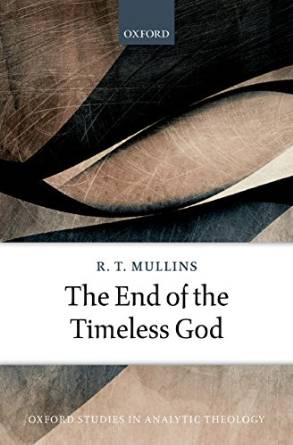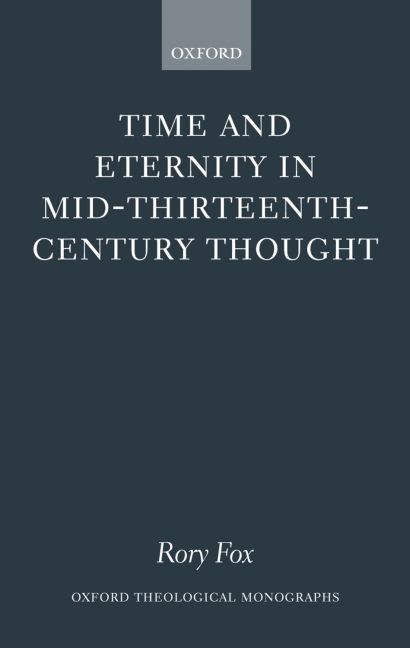Podcast: Play in new window | Download
Subscribe: Spotify | Email | RSS
 Is God “outside of time”? What does this claim mean, and should a Christian affirm it?
Is God “outside of time”? What does this claim mean, and should a Christian affirm it?
Dr. R.T. Mullins has just published a cutting-edge discussion of these and related questions, called The End of the Timeless God. He explains the latest distinctions from metaphysics concerning what time is, and what it is for a being to last through some range of time (e.g. from 1983 up through the present). He argues at length that a Christian should deny that God is timeless, contrary to the majority tradition since patristic times.
In this episode, Dr. Mullins surveys current philosophies of time and change, explains his understanding of time, analyzes the meaning of traditional claims that God is “timeless,” gives an objection or two to divine timelessness, and discusses previous theologians who’ve taken the minority view that God is temporal.
Next week, Dr. Mullins and I will go deeper into his reasons for disagreeing with the claim that God is timeless, and he also takes issue with some other divine attributes affirmed by “classical theism.”
- Links for this episode:
- Dr. R.T. Mullins’s papers at Academia.edu
- R.T. Mullins, The End of the Timeless God (kindle)

Ned Markosian,”Time” - Robert Rynasiewicz, “Newton’s Views on Space, Time, and Motion”
- Stefan Kirschner, “Nicole Oresme”
- Yenter and Vailati, Samuel Clarke on Space and Time
- Saul Fisher, Pierre Gassendi on space and time
- David Braun, “Indexicals”
- Rory Fox, Time and Eternity in Mid-Thirteenth-Century Thought
- Tony Jones on Nicholas Wolterstorf on God and time
- Christian Wildberg, “John Philoponus”
- podcast 102 – Dr. Brian Leftow on perfect being theology
- Boris Kment, “Varieties of Modality”
- podcast 124 – a challenge to “Jesus is God” apologists
- Today’s thinking music is “Blue Like Venus” by “spinningmerkaba.“

Dale, this was a great podcast. Well done!
I blush to admit that I had no idea that presentism was the standard position among theologians until recently.
I’m going to write an article discussing a couple of the topics that get raised.
Thanks, Randal. Of course, all credit goes to Ryan, who had a ton to say, and said it like a Jedi Master of a teacher. I learned a lot from his book!
This was a very good podcast. The concept of time has always intrigued me, whether time is just a measure of change i.e. time exists only as long as there is change or time exists as an abstract entity irrespective of whether change occurs or not. Or is as Kant thought, time (just like space and causality) are part of conceptual framework through which we view reality (i.e. time is part of phenomenal world, but not noumenal world). Newton thought both space and time as abstract entities in which every events in reality occurred. Einstein on the other hand spatialized (or physicalised) time in his theory of relativity. For him, both space and time are physical realities. It was a good way to mathematically model the reality, but I am not sure whether it corresponds to the reality itself. One other view of time is cyclical time which has acquired renewed interest in physics. Here time is tied to entropy of cosmos. One of my preferred models in this regard was Cyclical Conformal Cosmology by Roger Penrose. In this model, the cosmos starts from a point of least entropy where time begins and expands to a point of maximum entropy (resulting in heat death) where time for that cosmos ends. Then there could be a possible conformal rescaling back to the point of least entropy from which a new cosmos begins again with the beginning of time for that cycle of cosmos.
The understanding about time is essential to make sense of, when theologians says God is in time or outside time. I still don’t know what it means to be in time or being timeless. These are wonderful concepts to listen to, but what would it mean in reality is something that escapes my understanding. For example, Greek philosophers thought God is timeless because there is no change in God similar to change occurring in beings within sensible world. So that understanding of ‘in time’ and ‘timeless’ is tied to the belief that time is a measure of change.
Thank-you for doing this excellent interview. I can’t wait for part II. This is the first I’ve really heard someone straight up put the axe to this old tree. Your podcast is always refreshing. This has been a topic I have had lengthy discussions about in the last year with numerous people. I’ve found again and again that my view that God is not timeless is the radical one. It is viewed skeptically and as “unscientific” by all the people who think that since Einstein, basic common sense has left reality.
It has further seemed to me on reflection, that pop Christian philosophy and theology is often instinctively collapsing on one level or another into some sort of qualified timeless monistic pantheism. Reality as we experience it, including our own personhood becomes an illusion in the process. But since we can’t outright go all the way to total monism, we have to contradict ourselves to keep this game up.
Hyper-Calvinism is a good example of what I mean here, where human freedom and thus existence seems to be an illusion. People are chess pieces on a game board God’s playing with Himself, and that’s about it. Then there’s the lesser known “Christian Quantum Idealism” as another version, where everything is in God’s mind. This is a response to Non-Christian Quantum Idealism, which seems to be all the rage on youtube. In both instances it seems that God must be “outside of time” or time must be some sort of illusion.
In some examples that relate less directly to timelessness in God, sadly, many evangelicals seem to live as if they are just victims or beneficiaries of God’s will going one way or the other. They have no ability to take responsibility to do anything themselves, since it’s really just God doing everything. They don’t account for human action as being causal of much of anything at all. Some attribute the bad stuff to Satan, thus creating a sort of dualism, while others think God does the “bad” stuff too, in which case we must not call it “bad”. In either case, God’s existence seems a replacement for their own, on multiple levels. Some wash over personhood completely in order to attribute all human action to human nature instead, which has been corrupted since before they were born, thus making them exempt from action by that trick as well. Even prayer is not answered since God cannot change in response to events that happen in time.
The Bible is said by some to be filled with so much anthropomorphic language that we should put qualifiers on half of what it says about God. Your recent episode 137 spoke well against this. The idea that God needs us enlightened people to explain that He really means the exact opposite of what He says about Himself, is a foolish one. “He didn’t really change His mind. He didn’t really get upset in response to a human actions. He didn’t really feel or think or act in any way at all, and perhaps neither did the humans either.” “It was all done since before the world was created, God being outside of time. And our theology is historic and we can’t be wrong!”
Pop physics with its myriad videos on youtube with “experts” talking about “spacetime” and pretending that mathematical equations are the same thing as reality, is more of a religion than anything else. The unbridled abstraction being rejoiced in by the science geeks on NOVA is kills us as humans because we are denying our lived physical reality in favor of abstract mental and mathematical constructs which do not correspond to reality and disarm us of our common sense. A drug trip may be more real than reality. Alice In Wonderland is back in theaters.
On a more popular level still, this parallels with our bent necks bowed in worship, looking down into our smart phones, which project artificial reality into our eyes on a continuous basis. People are losing a hold of reality because everything’s at their fingertips now in artificial form. Even relationships have become cyberized. And some people are really losing it completely. The latest wave of nonsense is the so called “Mandella Effect” where people are mistaking their collective poor memory of stupid things, for an overlapping parallel universe which is able to change what “now was” from what “was was.” Perhaps, some think, this is being caused by Cern’s super machine.
The timeless God issue has huge implications not just for the direct effect it has on our perception of God, reality, soteriology, eschatology, human freedom, etc…, etc…, but also because of its correspondence with other issues where people have lost hold of reality after having been castrated of their common sense. They’ve forgotten what common sense even was. Perhaps they had a small dose of it for a few years as children before they watched their first horror movie and had reality traumatized right out of them. People need to be brought back to common sense, and given a good dose of knowledge that Quantum Physics and long held Christian doctrines inherited from Greek philosophy have not unhinged reality. Your podcast has gone a long ways to doing this Dale. God bless you.
Comments are closed.